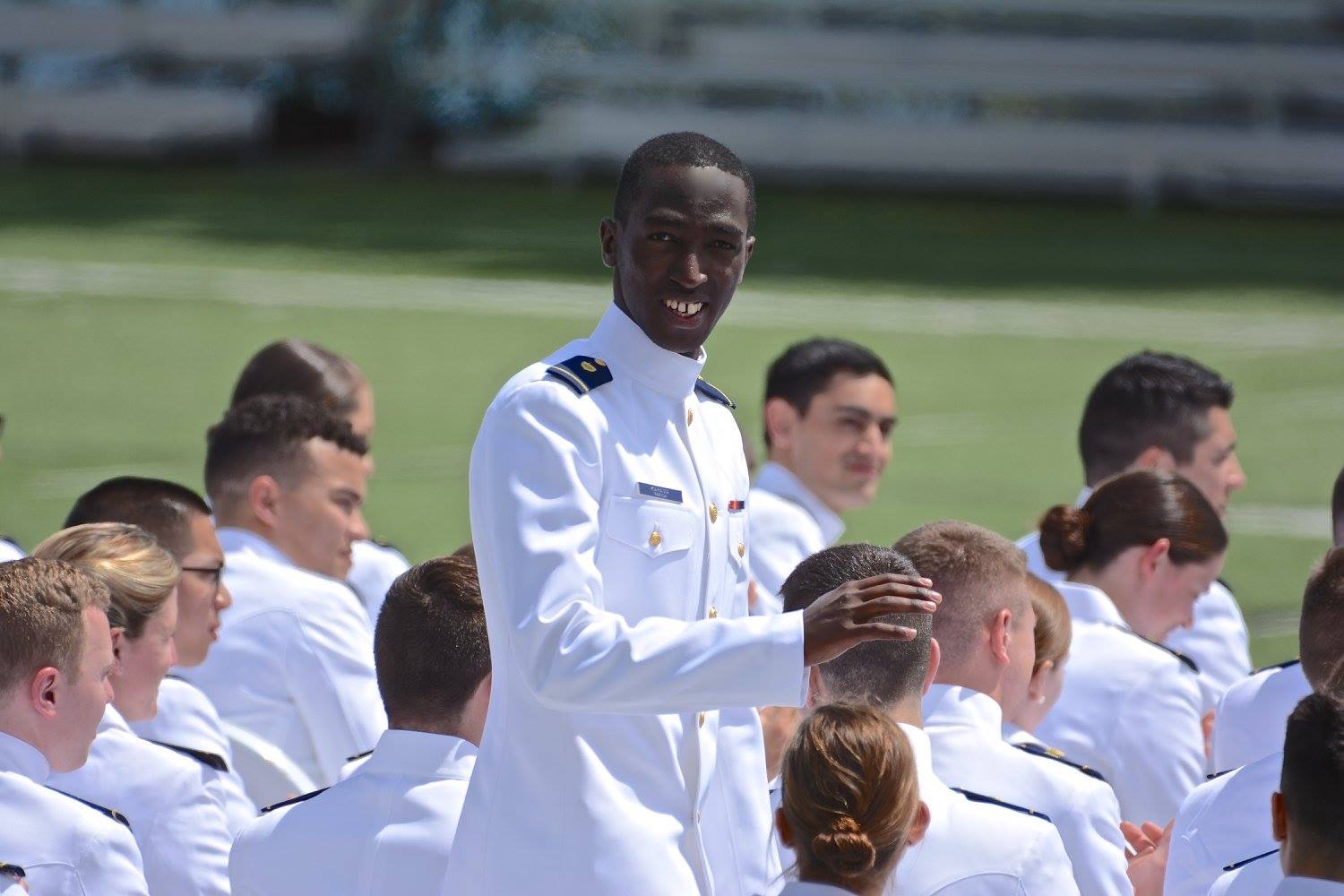
Jackson Karama was in the first class of B2R Scholars that graduated in May. He earned a scholarship to the U.S. Coast Guard Academy, where he learned more than just physics and sailing. Today, he lives in Kigali, the capital city of Rwanda, and serves as a 2nd Lieutenant in the Rwanda Air Force. Here, he talks about his biggest inspirations and shares a funny story from when he arrived at the U.S. Coast Guard Academy.

What was your childhood like in Rwanda?
I was born in Uganda in the refugee camp in 1990. My family came back from Rwanda and lived in the Eastern Province, in Nyagatare, in 1994.
From 1994 to 1999, most of the schools were churches, so we went to a church school. We spent most of the time at my grandmother’s house hunting, herding cows, and sharing meals together. During school time, we’d stay with my uncle and auntie, whom I call my parents because they brought me up with six other siblings. That was the life until 2000, when we moved to Uganda and continued primary school, where we learned new languages. I later came back to Rwanda for secondary school in Kigali. After graduating in 2010, I worked as a teacher at the school I graduated from, and in 2011, I started at Bridge2Rwanda. I came to the U.S. in 2012.

How did Bridge2Rwanda prepare you to come to the U.S.?
I learned a lot, a lot of English. I tried doing the ACT and TOFEL before but my scores improved greatly when I came to Bridge2Rwanda. The leaders like Dale and Anna are very encouraging. They have inspiring stories about what they’ve done in life, but it was also humbling to hear how they came to Rwanda to take Rwandan kids and train them, to help them become better. That was mind-blowing to us! Our teachers did so much to prepare us and kept pushing us even when we thought we were going to fail. I learned that if we can work this hard, as they do, we can succeed as well.
I also learned that community service is an important tool for helping me discover what I want to do in life. Bridge2Rwanda helped us go to orphanages where kids would look up to us as inspiration, and that made me want to work hard so I can show them they can do it too, so they have this hope that they can do great things. That’s when I discovered I had to be in a place of leadership or service for the country to make an impact, and that’s why I joined the military.
By default, in the military, you’re given rank, so there are people below you who look to you for guidance. It’s good that I have experience with leadership. I’m still learning more so I can get more leadership responsibilities with the Air Force.

What was the U.S. Coast Guard Academy like?
I went thinking I’d get a good education and come back but I was shocked by how much more the Coast Guard taught me. I got a mechanical engineering degree, but the most impact it had on me was changing my way of thinking, making me a leader, and impacting my work ethic.
People here in Rwanda want to get jobs, work for money and for some, want to get rich, but I feel like, after the U.S. Coast Guard Academy, if I had a job or didn’t have a job, I’ll still make a living. I’ve been equipped with so much, education and lifewise. I was challenged so much. Like swimming in oceans and lakes in cold places. I thought I would die if i did that! I’ve done things that made me think that I can do more than I thought I would and it’s made me excited about life because I realize I can make a change in the things I don’t like. The U.S. Coast Guard Academy definitely added more to me as a person. Education was just part of it. It’s more about the possibilities of working hard and thinking I can do anything.
When I first arrived at the U.S. Coast Guard Academy, I was punished for smiling a lot. I had to keep a serious face, so I had to be on a Smile Train for a whole week. A Smile Train is smiling for a whole week without stopping. You can stop when you’re sleeping, but if anyone’s watching you, you have to be smiling all the time. That was the punishment. After that, I didn’t smile anymore!

Was the U.S. different than you expected?
America was a lot better than I thought it was going to be. When I was younger, I thought America was paradise. Doing Bridge2Rwanda, they helped us watch movies on Friday Movie Nights and friends from the U.S. would tell us about it. College life was different at the U.S. Coast Guard Academy than at other places. So many people encouraged me so much. My host family took care of me like their own son. My teachers were amazing and encouraged me. My friends took me to their houses where I became like their brother. It was like a family. When I got there, I didn’t know I’d ever connect. I thought I was going to be a little lost. But it felt like home at the end of the four years. I wanted to come back to Rwanda because I knew I’d be more useful here, but the U.S. was still amazing.

The Bridge2Rwanda vision is to Build a bridge between here and Rwanda and transform lives at both ends. How has that applied to your life?
Bridge2Rwanda enables a young generation of Rwandans to get a college education. They don’t pay for us to go, but they equip us with something more expensive than money: the ability to earn scholarships, which is amazing and which no one has been able to do in Rwanda. Some are trying to fill that gap but they can’t. Bridge2Rwanda has filled that gap. Me and my friends who just got back are working in big positions, and not at small institutions. I’m doing things I can do because I’ve been to the U.S. and have been trained. I can do things that are useful because I’ve been taught. The bridge between people in the U.S. and Rwanda is incredible, so evident and so valuable to us.
If I didn’t go to school in the U.S., I don’t think I’d have this much education or this position. I couldn’t afford to go to university in Rwanda, so I’d be herding my mom’s cows or something, trying to be a man. There’s definitely a huge difference between what it could have been and now.
Thank you so much, Jackson!
Congratulations to the 41 students who recently graduated from the B2R Scholars program! We look forward to following your journeys as you begin college this fall. Thank you, Kigali Today, for your excellent coverage of our program, our students and the graduation ceremony!
 1. Tell us a little about your experience when you first arrived in the US. The plane ride, settling into your dorm etc.
1. Tell us a little about your experience when you first arrived in the US. The plane ride, settling into your dorm etc.
My first 24 hours in the US seemed to me too beautiful to be real. I was finally on the campus I had dreamed of for so long, but somehow I was not really appreciating the moment as I should have. My counselor showed me my room, and all I could think of was “Is this really happening?” But then, on the second day, I finally processed the fact that I was indeed at Yale. It was such an epiphany, the people were amazing and the campus stunning. I was overwhelmed with joy.
2. What has been one of the most pleasant surprises of your experience so far? Any funny or special moments you can share?

The best highlight of my time so far was my birthday on October 5th. Like almost all my Mondays, I had a lot of work for my classes; at midnight October 5th, I was literally immersed in my homework for Italian class. But then, first surprise of the day, Chaste posted a wish on my Facebook wall which literally made my day. And later, in the evening, I came back to my room from a walk with Chaste around campus, and found that my friends had prepared a surprise party. It was one of those moments that are simply perfect.
3. What have been some of the challenges you have faced so far?
The first few weeks were really hard because I did not feel like talking to people. As surprising as it sounds, I felt we would not bond given that I am so much older. I hung out with Chaste all the time. Over time, I realized that it was just an excuse I gave to myself not to face that fear. I decided to change, and made amazing friends since then. Up to now, I still have such moments of doubts, but I learned to cope with it and move on.
4. Tell me about your favorite class and why you like it?
My favorite class so far is Introduction to Music Theory. I was in choir for very long but never actually learned how to read music notes. Every day in class is so much fun. I am also taking the class because I am also interested in DJ-ing and music production. The class is a perfect combination of fun and pursuit of a passion.
5. What do you look forward to as your time in the US and at Yale continues?
My time here made me realize how much I value my relationships with people. I feel like every person on campus is exceptional; the Yale community is simply wonderful. I am really looking forward meeting more and more amazing people and learning about their stories.
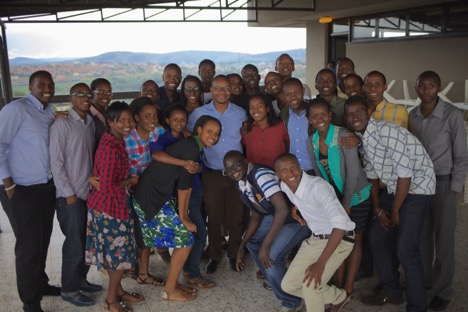
32 students from the 2014-15 Bridge2Rwanda Scholars class have now accepted scholarships worth more than 9 million USD over 4 years.
The current total 4-year value of scholarships accepted by Bridge2Rwanda Scholars since 2012 is 22 million USD.
| Scholar | University |
| Olivier I. | Abilene Christian University – Abilene, TX |
| Sandrine I. | Abilene Christian University – Abilene, TX |
| Peace Grace M. | Agnes Scott College – Decatur, GA |
| Wek M. | Arizona State University – Phoenix, AZ |
| Noella K. | Ashesi University – Ghana |
| Cedric M. | Babson College – Wellesley, MA |
| Moise B. | Bates College – Lewiston, ME |
| Bonheur K. | Brown University – Providence, RI |
| David D. | Brown University – Providence, RI |
| Diana M. | Columbia University – New York, NY |
| Patrick I. | Dartmouth College – Hanover, NH |
| Hubert T. | Harvard College – Cambridge, MA |
| Julius N. | Jacobs University – Germany |
| Pierrette D. | Lafayette College – Easton, PA |
| Felix I. | Michigan State University – East Lansing, MI |
| Andrew W. | New York University – Abu Dhabi, UAE |
| Justin M. | Pitzer College – Claremont, CA |
| Benon M. | Samford University – Birmingham, AL |
| Irene K. | Texas Christian University – Fort Worth, TX |
| Pacifique R. | Texas Christian University – Fort Worth, TX |
| Esperance M. | The University of Chicago – Chicago, IL |
| Gabriel U. | Trinity College – Hartford, CT |
| Florence M. | Trinity College – Hartford, CT |
| Jocelyne A. | Union College – Schenectady, NY |
| Sandra U. | University of Pennsylvania – Philadelphia, PA |
| Claude I. | University of Rochester – Rochester, NY |
| Derrick M. | University of Rochester – Rochester, NY |
| Emmanuel C. | University of Rochester – Rochester, NY |
| Belyse I. | Wellesley College – Wellesley, MA |
| Rodney R. | Wheaton College – Norton, MA |
| Chaste N. | Yale University – New Haven, CT |
| Francis C. | Yale University – New Haven, CT |
The importance of service is emphasized throughout the B2R Scholars Program, and several Bridge2Rwanda Scholars chose to use their Spring Breaks helping others through various service opportunities.
Nancy Ndekwe, who studies at Abilene Christian University, took a trip to Saltillo, Mexico.
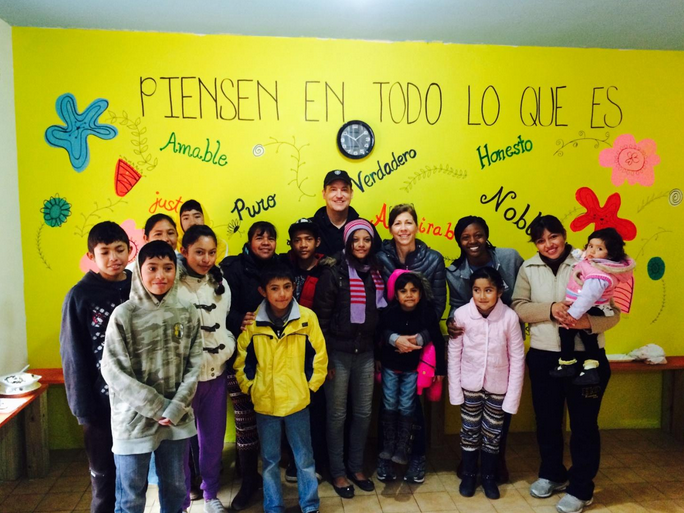
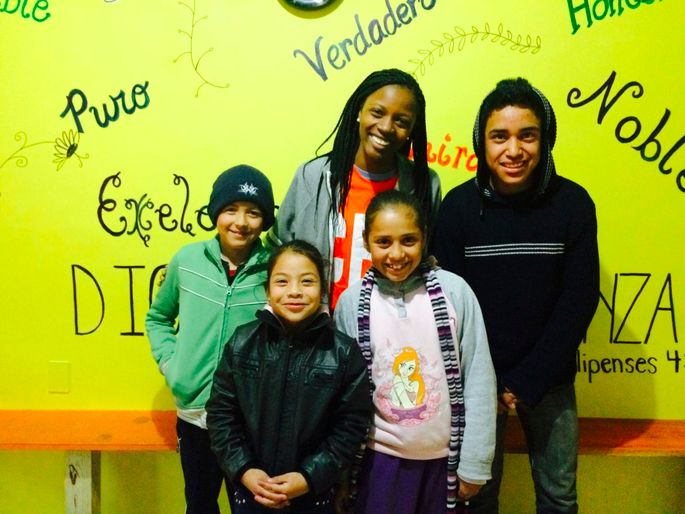
“It was amazing to share the love of God with the kids and families in Saltillo, Mexico. Getting to visit them in the barrios (slum) was a hard and an eye opening experience for me. Most people think that because one is from Africa, you have seen it all. I don’t think seeing people living an impoverished life is something you get used to.
What amazed me the most is that throughout their situation, they love their families and friends/community dearly and have so much happiness that it seems like they have it all. For me, it was a reminder that whatever our circumstances might be, either good or bad, always be thankful and willing to give a helping hand.”

Josee Uwayezu who studies at Dartmouth, traveled to Logan, Ohio and volunteered with Habitat for Humanity.
“…The house we worked on will belong to a mother with three children. The house is mostly sponsored by different churches in the area and the community in general.
This trip reminded me that a service to others is a great way of learning about life and to be very grateful for the life I have. Most importantly it reminded me that I wouldn’t be where I am, or where I am heading, if I have not been given a hand.
One of my favorite moments was to see the community have dinner together and I learned that the dinner is not only to support people with a meal but to also give them a way to socialize.”
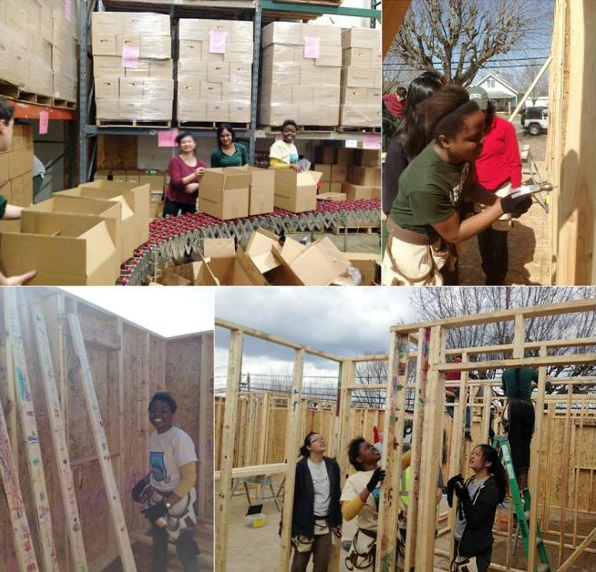
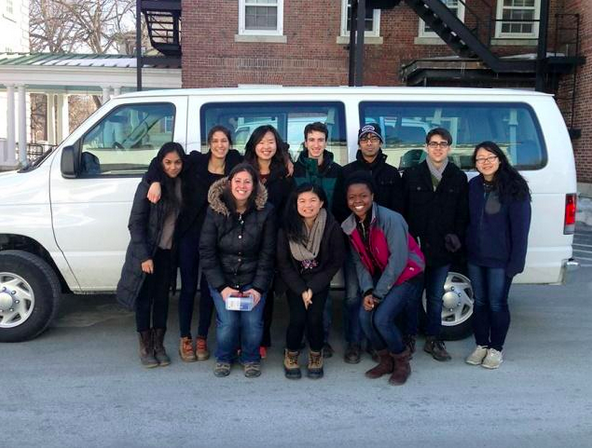
Janvier Rustobe, who studies at Texas Christian University, went on a trip to Honduras.
“I went for a mission trip in Honduras during spring break of this year. We went as a group of 6 from McKinney Church and we were working with Living Water International to drill a water well in Saba, Colon (a village in the North-West country side of Honduras). The drilling site was in the middle of an elementary school, and while the guys were drilling, ladies were in charge of teaching the kids about hygiene and how to use the well properly to keep the water clean.”
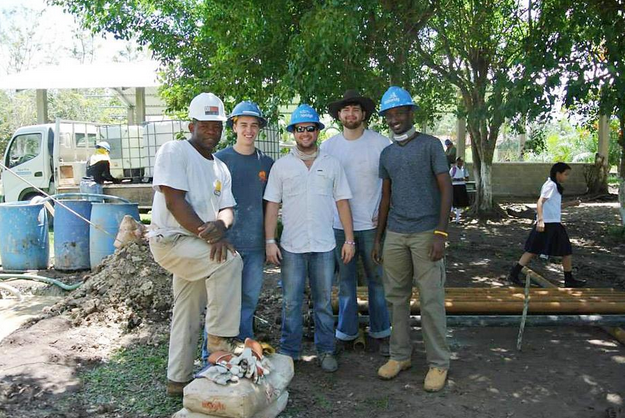
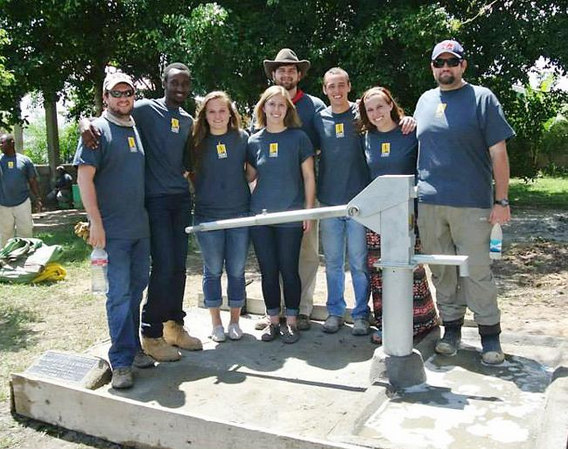

Bridge2Rwanda scholar Justus Uwayesu, who is studying at Harvard, is on the front page of The New York Times today, both in print and online! Justus’s story is remarkable, and he is one of more than 100 students in our program, many of whom could share similar stories.
Share the story with your friends on Facebook or Twitter. Please share the story directly from The New York Times website, and mention your connection or thoughts on Bridge2Rwanda in the post. The reporter and online staff will take notice if the story generates a lot of social media posts that mention Bridge2Rwanda.
Comment on the story on the New York Times website. By commenting on NYTimes.com, your comment will be available to anyone who reads the story. In your comment, share your personal experiences with B2R.
Write a thank you note to Michael Wines, the reporter, for mentioning Bridge2Rwanda in his story. You can email him by clicking “Send an E-mail to Michael Wines” on his profile page.
This article was written and featured in The New Times Rwanda, a daily national newspaper based in Kigali, Rwanda.
In May 2011, Rosine Ndayishimiye and 10 schoolmates initiated the first ever entrepreneurship club at their school, Lycee de Kigali.
“We wanted it to be a practical tool to the Entrepreneurship course that was by then taught in theory,” she said and added: “With the help of our senior advisor and teacher, Mitesh Patel, we launched the club. Four months later, we started a business of selling fruits—avocadoes and bananas. We started with an initial capital of Rwf28, 000 (approximately $43 USD), and scaled to profits of more than a million a year (approximately $1550). EWe started by doing it ourselves, but as it grew, we employed someone.”
Just before this venture, Ndayishimiye had attended the Babson Entrepreneurial Leadership Academy (BELA), an event she credits for setting her entrepreneurial mindset in motion.“Our school was given an invitation and I was lucky to be one of the six students selected to represent Lycee de Kigali high school in the BELA 2011,” she notes.
Upon return from that week-long entrepreneurship workshop, she and 10 other like-minded students immediately got down to work. “We did a mini market research among students by giving them questionnaires to answer. Our research revealed that students needed healthy and cheap appetizers with which to supplement the school food. We then asked for permission from the school administration, pooled resources and started the business.”
Each member came up with an initial contribution of at least Rwf2, 000 (approximately $3), and together, they managed to raise a total of Rwf 28.000 ($43). “At the beginning, we used to sell between 16-30 avocadoes per day. Now the club sells at least 200 avocadoes. That is profit of Rwf 1 million RWF per month,” she says.
Ndayishimiye notes the venture was (and still is) not just about the money: “Our club also had a social aspect, for instance, we were able to organise an anti-smoking week at the school last year, with the help of the World Health Organization. This was still in line with our vision to help people live a more healthy life, which is why we went into the fruit business in the first place. We also made visits to established businesses like Bralirwa and Bourbon Coffee, just to get mentorship from their staff.”
She notes that the club has since grown from the initial 11 pioneer members to 50. “It’s serving very many people with a bias for entrepreneurship, not just the initial members.”
Thanks to her efforts exhibited through the school entrepreneurship club, Ndayishimiye was selected from more than 1,200 applicants to be one of 23 Bridge2Rwanda Scholars. And through her hard work and perseverance, she has now managed to secure a full scholarship to Babson College in the US, for which she leaves next year.
Ndayishimiye received the good news about her scholarship on December 3, and had this to say: “Today, I got an admission and a full scholarship from Babson College, ranked number one university in the world in Business and Entrepreneurship!”
She went on: “It is an exciting opportunity not only for me but also for my country. I plan to study Entrepreneurship and Environmental Sustainability. At the end of my education at Babson, I want to come back and help my country in helping youth create businesses that are profitable and environmentally friendly.”
After her secondary education at Lycee de Kigali, Ndayishimiye enrolled for the Bridge2Rwanda Scholars Program. Bridge2Rwanda Scholars Program is a gap year program that helps the best-performing Rwandan students win scholarships in top tertiary institutions in the US, Canada and in Europe.
“When I was done with high school, I heard of Bridge2Rwanda applications from the Babson Rwanda Entrepreneurship Center, and I immediately applied since it looked like a great opportunity for me. In March this year, I was privileged to be one of 30 students selected from 1200+ applicants,” she says excitedly.
She has also been active on other fronts: “For two years , I have participated in Rwanda Global Entrepreneurship Week activities as a co-organizer of GEW at Lycee De Kigali and as a trainer. We trained secondary school students in business idea generation and organized rocket pitch competitions. Some of our trainees have already begun the process of starting their own businesses. The whole idea is really to inspire persons from all walks of life to see the hidden potential in entrepreneurship, and also to realize that it is always possible to begin from somewhere, with or without money. In our case, we started our school entrepreneurship club with a net capital of Rwf28, 000.”
After she has attained her degree, she hopes to build on the entrepreneurial foundation already set with the school entrepreneurship club. She reckons that being one’s own boss comes with a host of benefits: “Being self-employed gives one the independence and flexibility in his decision making. Though it might be challenging, it gives one employment and other people too. It is not just one person to benefit, but the whole country; it reduces unemployment and hence other people’s suffering is eliminated or reduced.”
She is acutely aware too of some of the negative sentiments that such a career move is bound to attract, and drawing from her own experience says: “For someone who did science in A-Levels, it is hard to understand how I can settle for Entrepreneurship and business. Some people think that I should study and do medicine. For instance, people, especially students, consider that selling avocadoes is a dirty job that I and my friends should have left. But I believe that there is no dirty job or business as long as it serves people and gives profits.”
Who does she look to for motivation? “Jesus inspires me very much. He undertook His great mission selflessly for the wellbeing of others. I emulate Him by doing all my best for others, not for recognition, but for the fact that they deserve to be treated well. Nelson Mandela, Mitesh Patel, and my parents also are my great role models. Every day that I wake up, I take some time to pray, think about what God has done for me, and plan for the day. I read an article or a book. I prepare myself and then go to school. When I go back home, I greet everyone and ask about how he or she feels; I feel that it is important for me to relate well with my people. I exercise and then have super. I pray with my family, read the Bible and go to sleep.”
Currently, she is also involved in community work with the Christian Youth Organization for Physical and Spiritual Development (CYOPSD), a non-profit organization that helps improve the financial plight of Christian youths and students by furnishing them with entrepreneurial mentorship and business trainings.
Ange graduated first in her high school class, having consistently held the top position in her class throughout Secondary school. When Ange joined the B2R Scholars Program in 2012, her English skills were weaker than most other students because she had been in a rural area, but we immediately recognized a unique spirit and spark about her. She worked extremely hard and became one of the highest scorers in the class on the standardized exams. Consequently, she won a full scholarship to Marist College in New York where she is currently in her Freshman year. Below, Ange shares about some of the challenges she faced growing up in Rwanda and how she overcame those struggles to get to where she is today. Ange has an incredibly giving heart, and she had a great passion to return to Rwanda to help her people. We are proud to be a part of her journey!
My mother’s character has led to my determination and made me the person I am today. In April 1994, it was the time when genocide took place in Rwanda. On the first day of the genocide, April 7th, my father was shot and killed. My mother was pregnant and I was about one year and a half old. My mother and I had to flee to the stadium in the middle of Kigali, the capital of Rwanda, where numerous people were gathered. We stayed there until the end of April, when my mother gave birth to my brother. At that time, she couldn’t find enough porridge, or anyone to support her in these hardships, yet she persisted. Many parents were separated from their children during the genocide, but she refused to leave us. For two months, she hid us and searched for food. I was too young to help her, but she did this until the end of the genocide. Her persistence played an important role in our survival, which is a great credit to her.
After the genocide ended, my mother took us to return where we lived before. But when we arrived there, she found that a soldier had appropriated our house. She asked him to leave, and he intimidated her and said that if she continued to insist, he would kill her. Therefore, my mother took a resolution of hiding my brother and me in another place that was far from our neighborhood. After that, she went fearlessly to the soldier’s captain and reported the problem. After seeing the determination my mother had to return, the captain resolved the problem and we returned back to reside in our home. It was due to my mother’s great resolution that we were able to live there again.
My mother was unable to attend high school, but she values education so much. She always pushed my brother and me to study, which taught us the value of education. She made it possible for us to do well at school, even if there were many hardships in our lives. We didn’t have electricity at home and we had much domestic work to do, but she borrowed a room with electricity from a neighbor so that I could study comfortably. Her motivation gave me a strong reason to work hard. We had no valuable resources and not enough land for an inheritance. But her daily and precious advice allowed me to study as hard as I could, so as to build my own inheritance. She also inspired me along the way, by how she joined a school that taught women how to make traditional jewelry. Her willingness to study, regardless of her age at that time, encouraged me to study diligently as well. Thereafter, I became eager and committed on my studies in order to achieve a better future, which is my dream. At home, my first responsibility was to study, but I had other household duties after school such as cleaning the house, fetching water and washing dishes. I managed to perform well in class and later won a scholarship to attend secondary school.
At high school, I had to alternate my classes with activities like the students’ commission, the Anti-AIDS club and others. The key to succeeding in this was respect, and my mother taught me this habit. For my mother, respect was a great thing to value. As a woman with little education, she kept in mind that for someone to be respected, she has to respect herself first. She used to tell me that respect does not come from what one has but from who she is. She was always occupied making jewelry, respected everyone and she didn’t waste her time going to the bar, as an uncommitted person would do. My mother taught me to respect myself. As a result, I tried to be exemplary at school, especially when I was in secondary. Being one of the student representatives, I respected myself and others by fulfilling my responsibilities and being punctual, as she taught me. The one tool that guided me through was the persistence I adopted from my mother.
The key to success in everything that I am involved in is the persistence, respect and determination that my mother taught me. Now that I am no longer a kid, I see that I bear fruits that my mother sowed in me since I was a child and this is the foundation of who I am and what I do. What I learned from her improved my credibility and success in life. The fact that I like to learn and do research is the result of her influence. As a Bridge2Rwanda Scholar, I have worked hard to get into a top University in the US. I respect what I do and who I am, and I respect others and their beliefs. I intend to apply all I have learned from my mother, and to share what she taught me to help bring positive changes to my community. She is more than a mother to me. She is my hero.
Danny Biz, B2R scholar and student at Gordon College, told his inspiring personal story during chapel last week.
Danny was 4 years old during the 1994 genocide. He was separated from his parents for three years, believing they were dead, before being reunited when he was 7. To further his education, Danny taught himself how to speak English and use computers before someone recommended him to the B2R Scholars program.
Watch the video below to hear the rest of Danny’s incredible story!
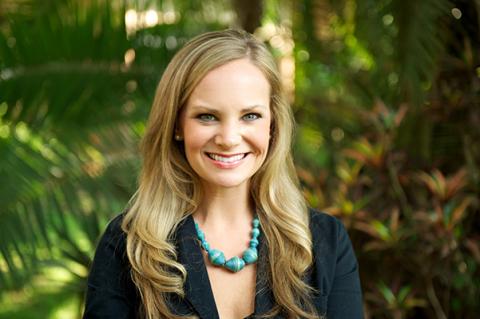
The Arkansas Alumni Association has featured Bridge2Rwanda Executive Director Anna Reed on its blog, mentioning her Razorback roots and passion for developing leaders in Rwanda! Read the full story here.

Cadet Jackson Karama, sophomore at the US Coast Guard Academy, catches a foul ball this summer at his first major league baseball game cheering on the Red Sox. But that is not even the amazing part of the story. Click here to read the rest of Jackson’s heartwarming foul ball story.